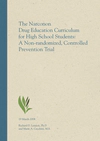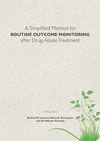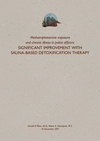Narconon Results
Studies & Reports
A Sampling
“A key element in the Narconon drug rehabilitation program is the high priority given to the stage of reentry into society. …Basically, this reentry plan is a therapeutic contract that specifies the strategies that will be applied by the student once back in the community. … The Narconon program therefore has a thorough follow-up program to assist its program graduates in achieving the stated product of the Narconon program: A drug-free individual contributing to society.”
—Alfonso Paredes, MD
Professor Emeritus of Psychiatry
and Biobehavioral Science, UCLA
“A Simplified Method for Routine Outcome Monitoring after Drug Abuse Treatment”
(R.D. Lennox, Ph.D.; MA Sternquist, MS, and A. Paredes, MD, published in the journal Substance Abuse: Research and Treatment 2013:7, 155-169) A study of 323 graduates showed that six months after completing the Narconon programme, 73.5% of graduates had not used any illegal drug; 94% were arrest‑free.
“Summary Analysis of Routine Outcome Monitoring by Narconon Eslöv (Sweden) of Its Drug Rehabilitation Program Graduates, 2010-2012”
In this study, 49 Narconon graduates were surveyed one to three years after graduation. No drugs after first six months post graduation, 80%. In previous 30 days: working or in school, 77%; arrest-free, 98%; good relations with family, 86%.
“Narconon Boston Case Study with Control” (C. H. Washburn, MD, June 30, 1975)
In this study of 11 graduates conducted 10 months postprogram, 91% of Narconon case study group were reported drug-free, compared to 0% of control group drug-free.
“Intermediate Sanctions for Juvenile Offenders: Impact of the Narconon New Life Detoxification on High-Rate Juvenile Offenders, Utah Fourth District Juvenile Court” (Study presented to the Conference of Western Attorneys General, Maui, August 2005)
One hundred of the first youths enrolled in this court-ordered program had been convicted of 1,100 misdemeanor or felony offenses within two years prior to the Narconon outpatient program. Following Narconon program completion, 63.5% of the juveniles were crime-free for two years after the program compared to 30.1% of a control group.

Outcome Studies

and Marie A. Cecchini, M.S.
read the study

Marie A. Sternquist and
Dr. Alfonso Paredes
read the study

Marie A. Sternquist, M.S.
read the study